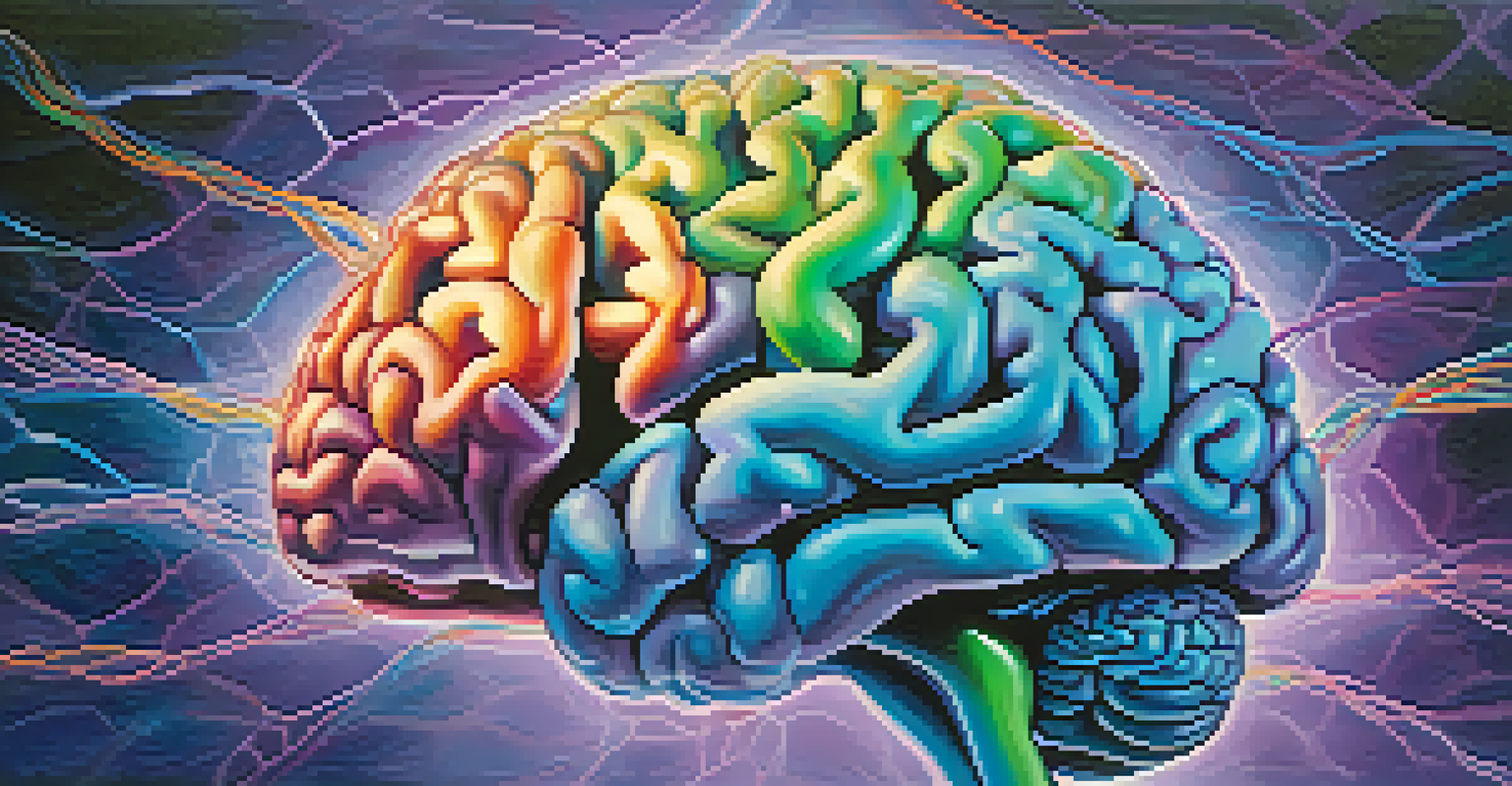Exploring the Role of Entheogens in Addiction Recovery Journeys

Understanding Entheogens and Their Effects
Entheogens are substances, often derived from plants, that are used in spiritual or therapeutic settings. They can induce altered states of consciousness, potentially leading to profound personal insights. These substances have been utilized in various cultures for centuries, primarily for healing and ritualistic purposes.
The greatest discovery of my generation is that a human being can alter his life by altering his attitude.
In recent years, there's been growing interest in how these substances can assist in addiction recovery. Users often report enhanced emotional awareness and the ability to confront underlying issues that contribute to their addiction. This can be crucial in breaking the cycle of dependency.
While research is still in its early stages, preliminary studies suggest that entheogens may promote neuroplasticity, enabling the brain to form new connections and patterns. This ability to 'rewire' the brain could help individuals develop healthier coping mechanisms as they move away from addictive behaviors.
The Science Behind Entheogens and Addiction
Entheogens, such as psilocybin and ayahuasca, interact with serotonin receptors in the brain, which can lead to significant shifts in perception and mood. These alterations can provide a fresh perspective, allowing individuals to reflect on their experiences and emotions. Understanding the biochemical effects of these substances is crucial for their application in recovery.

Research has shown that entheogens can create a sense of interconnectedness and emotional release, which are often missing in traditional addiction treatments. This feeling of unity can help individuals feel less isolated in their struggles, fostering a supportive community around their recovery journey.
Entheogens Aid Addiction Recovery
Entheogens can enhance emotional awareness and facilitate confrontations with underlying issues, offering a new avenue for addiction recovery.
Furthermore, studies indicate that the therapeutic use of entheogens can result in long-term behavioral changes. Participants in clinical trials have reported reduced cravings and improved mental health, suggesting that these substances may offer a viable alternative or complement to conventional treatment options.
Personal Stories: Success with Entheogens
Many individuals have shared transformative experiences stemming from their use of entheogens in recovery. For instance, a former opioid user recounted how a guided psilocybin session allowed them to confront deep-seated trauma, ultimately leading to a significant reduction in cravings. Stories like this highlight the potential effectiveness of these substances in personal healing.
Addiction is a symptom of not growing up. It's a way of dealing with emotional pain, and many people turn to substances as a way to numb that pain.
Another individual described how participating in an ayahuasca ceremony helped them release pent-up emotions tied to their addiction. This cathartic experience not only aided in their recovery but also fostered a renewed sense of purpose and direction in life. Such testimonials can inspire hope for others facing similar battles.
These narratives emphasize that recovery is not a one-size-fits-all journey. The integration of entheogens into treatment plans may provide a unique path for those seeking alternative methods to overcome addiction, showcasing the importance of personalization in recovery strategies.
The Role of Integration After Entheogenic Experiences
Experiencing an entheogen can be a life-changing event, but the journey doesn’t end there. Integration is the process of making sense of these experiences and applying insights gained into everyday life. Without proper integration, the powerful feelings and realizations can fade, leaving individuals feeling lost once again.
Support groups, counseling, and community resources often play a vital role in the integration process. Engaging with others who have undergone similar experiences can provide valuable perspective and encouragement. This ongoing support can help individuals stay grounded as they navigate the complexities of recovery.
Integration is Essential Post-Experience
Successful recovery from entheogenic experiences relies on proper integration, helping individuals apply insights gained to their daily lives.
Moreover, journaling and self-reflection can aid in solidifying the lessons learned during entheogenic experiences. By documenting thoughts and emotions, individuals can track their progress and maintain focus on their goals. Integration ensures that the benefits of entheogenic experiences extend beyond the initial encounter.
Potential Risks and Considerations with Entheogens
While entheogens offer promising avenues for addiction recovery, they are not without risks. Negative experiences, or 'bad trips,' can occur, leading to heightened anxiety or emotional distress. Therefore, it’s crucial for individuals to approach this journey with caution and under professional guidance.
Additionally, the legal status of many entheogenic substances varies widely across regions, which can complicate access to treatment. Understanding local laws and potential legal repercussions is important for anyone considering this route for recovery. Seeking out licensed practitioners or facilities that specialize in these treatments can help navigate these challenges.
Lastly, not everyone may respond positively to entheogens. Factors such as mental health history and personal beliefs can influence outcomes. A thorough assessment and open communication with healthcare providers can help ensure that entheogens are a suitable option for those looking to break free from addiction.
Traditional vs. Entheogenic Approaches to Recovery
Traditional addiction recovery methods, such as 12-step programs and cognitive-behavioral therapy (CBT), have helped many individuals over the years. These approaches often focus on behavioral changes and coping strategies. However, they may not address the deeper emotional and psychological issues that underlie addiction.
On the other hand, entheogenic approaches seek to delve into these deeper layers by facilitating profound personal insights and emotional healing. This can create a more holistic recovery experience, one that encompasses the mind, body, and spirit. For some, this may be the missing piece in their recovery puzzle.
Risks and Considerations Exist
While promising, entheogens come with risks such as potential negative experiences and varying legal statuses, necessitating caution and professional guidance.
By combining traditional methods with entheogenic experiences, individuals may find a more comprehensive pathway to recovery. This integrative approach acknowledges the complexity of addiction and the multifaceted nature of healing, allowing for a more personalized journey.
The Future of Entheogens in Addiction Treatment
As interest in entheogens grows, so does the need for rigorous research and clinical trials to establish best practices. The future of these substances in addiction treatment will likely depend on scientific validation and the development of safe, controlled environments for their use. This includes training for facilitators and creating guidelines for effective integration.
Public perception is also shifting, with more individuals open to exploring alternative therapies for addiction. This growing acceptance can pave the way for policy changes that may eventually allow for broader access to entheogenic treatments. Advocacy and education will be crucial in promoting understanding and reducing stigma.

Ultimately, the future of entheogens in addiction recovery could lead to innovative treatment options that empower individuals in their healing journeys. As we uncover the potential of these substances, they may play an integral role in reshaping how we approach addiction treatment for generations to come.